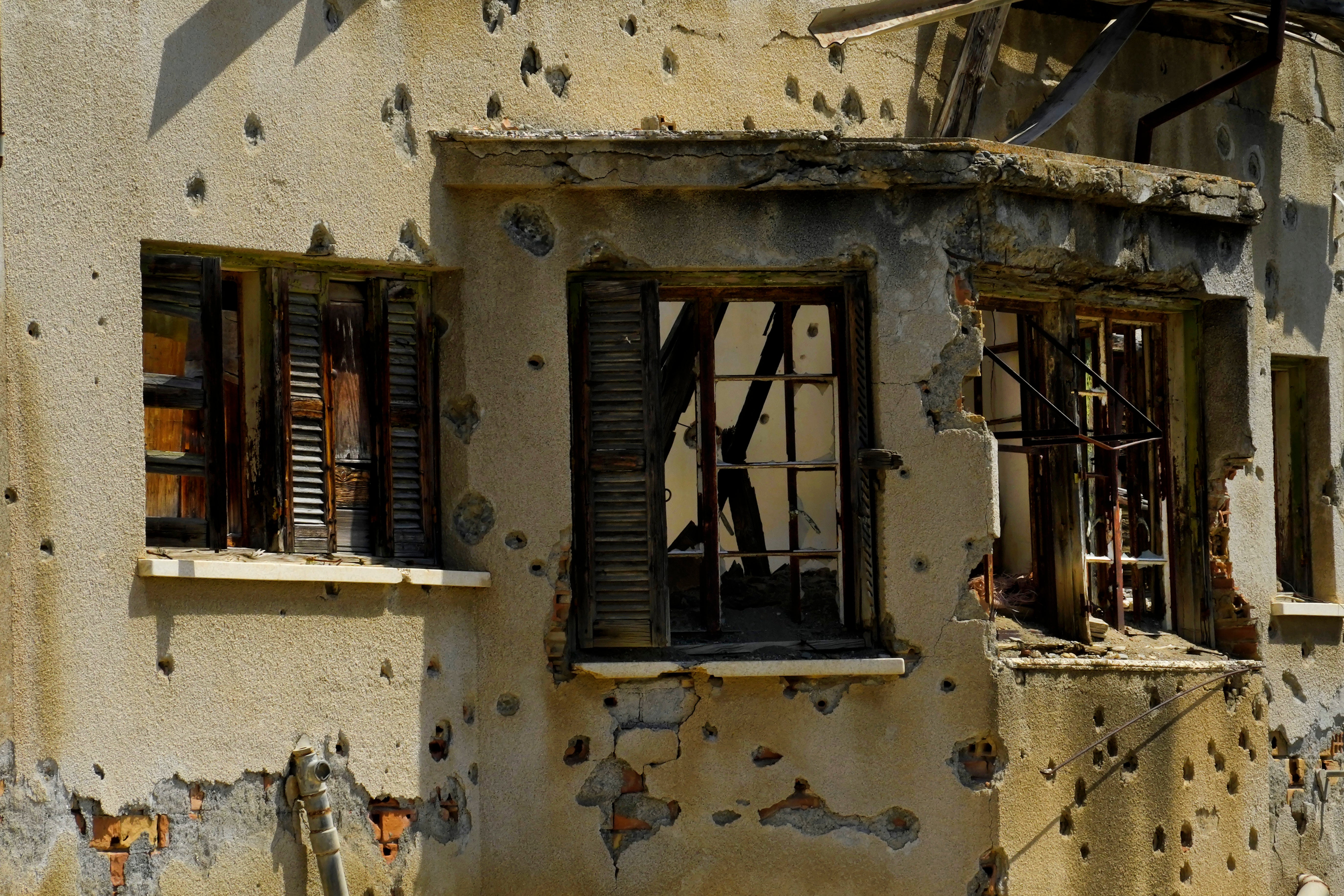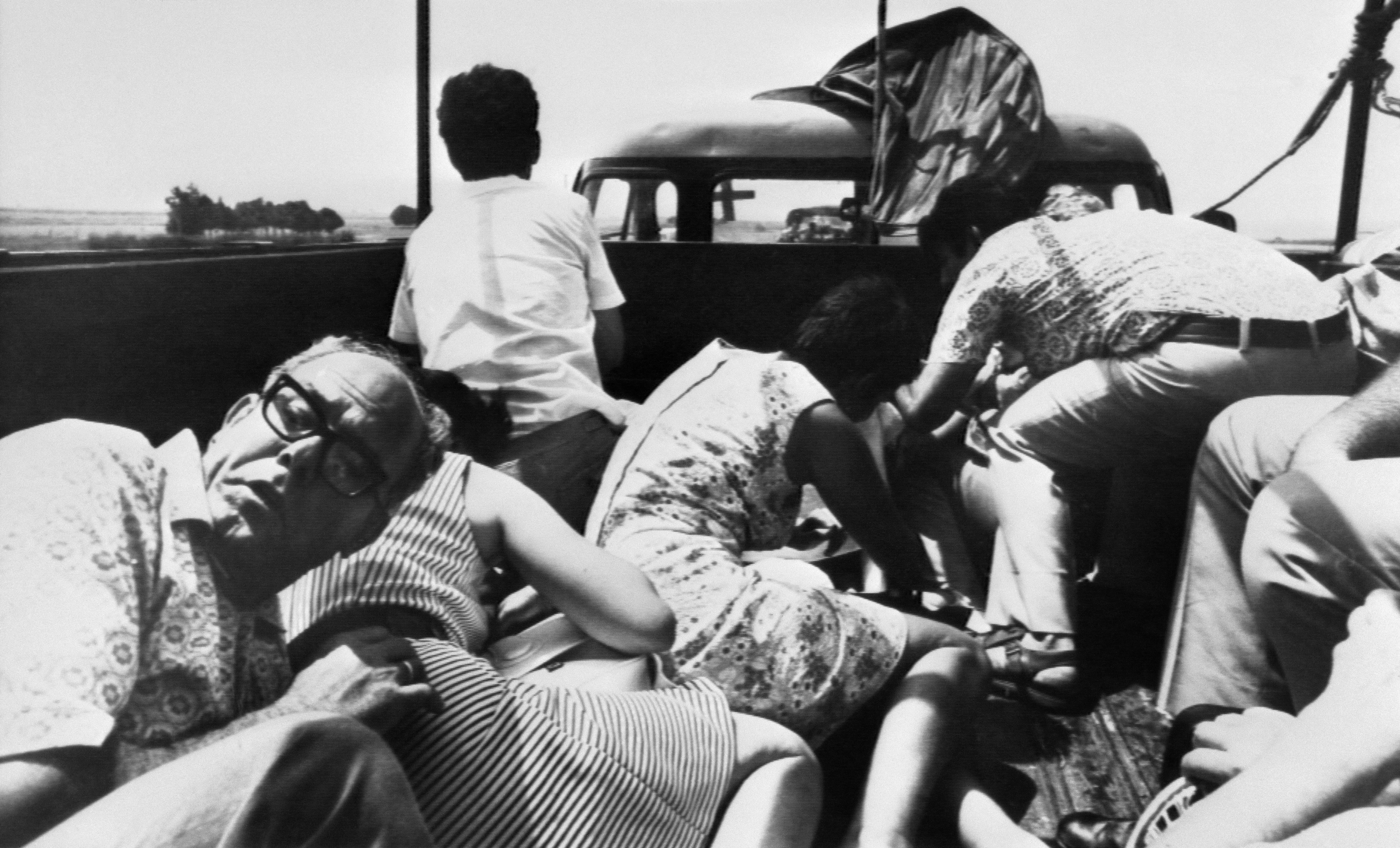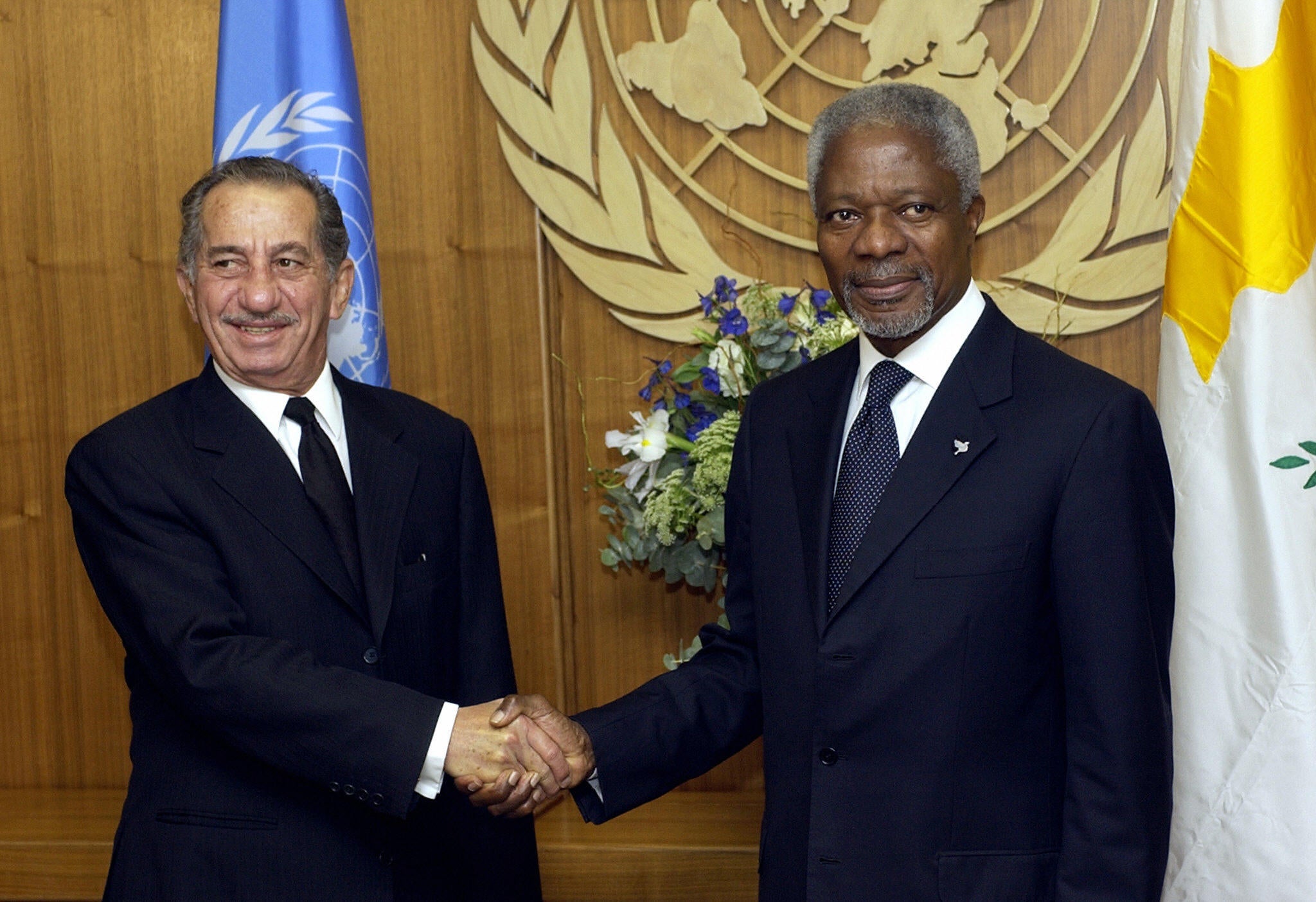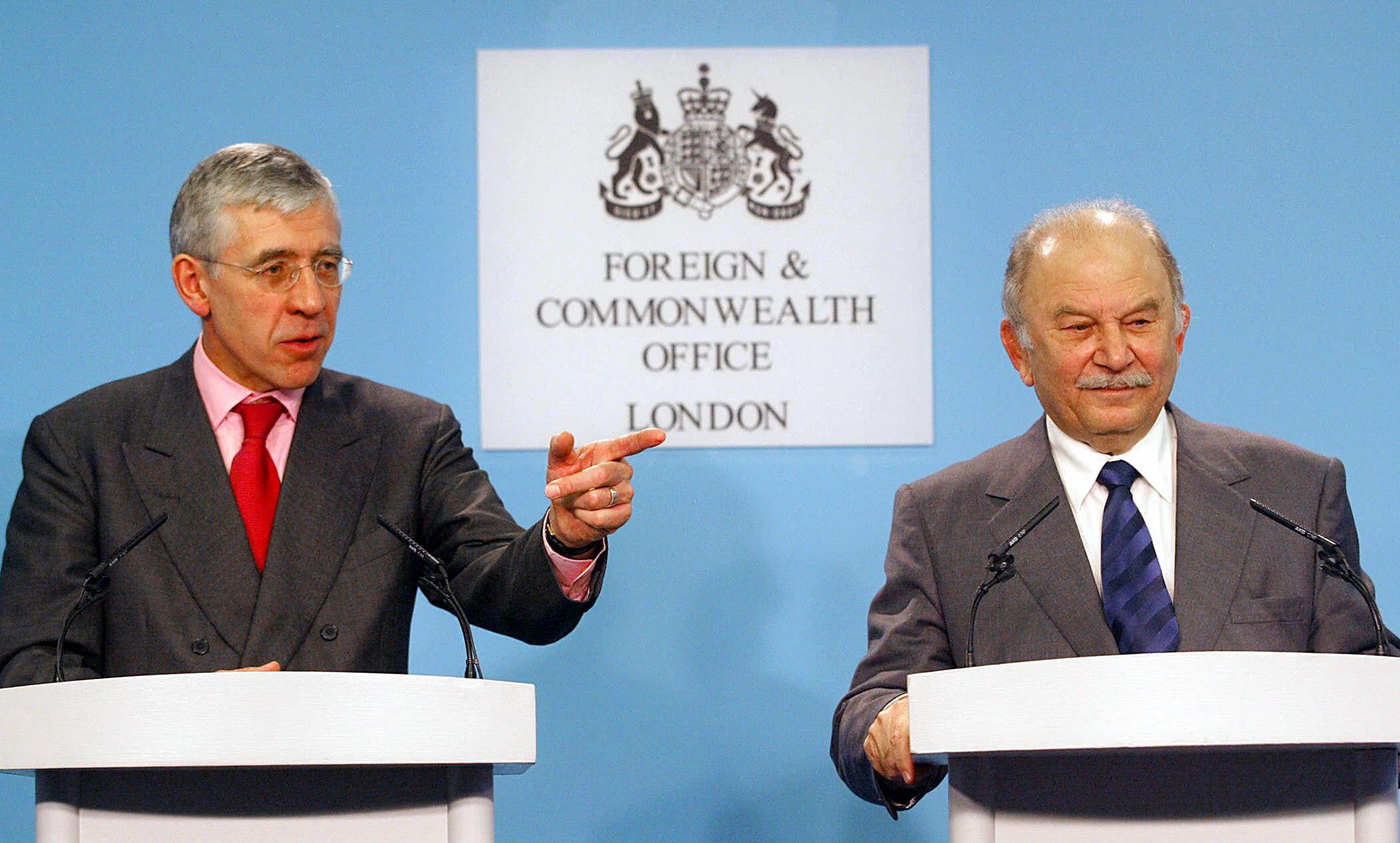Jack Straw: Why I think it’s time to consider a two-state solution to end the ‘absurd’ 50-year Cyprus crisis
The failure to insist on a power-sharing agreement between the Turks and Greeks in Cyprus before the country joined the EU is one of my greatest regrets during my time as foreign secretary, writes Jack Straw and why I believe the partition of the island should be on the table…


Today is the 50th anniversary of the invasion of Cyprus by Turkish armed forces, and the beginning of what we now call the Turkish Republic of North Cyprus (TRNC). The difficulty however for its nearly 300,000 Turkish-Cypriot residents is that only one country – Turkey – recognises TRNC in international law. In legal theory, but in no reality whatsoever, the “Republic of Cyprus”, the southern part of the island, and its 840,000 Greek-Cypriot residents, cover the whole geographical territory of the island.
Cyprus occupies a key strategic position at the eastern extremity of the Mediterranean. It’s only 130 miles from its eastern end to Beirut and it has been contested throughout its history.
The Assyrians, the Persians, the Macedonians, the Romans, the Byzantines, and the Ottomans all controlled it at various times.
At the zenith of the British Empire, in 1878, the UK “leased” it and took de facto control, declaring its de jure control at the outbreak of the First World War. So, it remained until it was granted independence in 1960.
Around three-quarters of its population are Greek Cypriots; one-quarter are Turkish Cypriots. The Greek Cypriots are overwhelmingly Orthodox Christians, looking to their “mother churches” in Greece and Russia. The Turkish Cypriots are overwhelmingly Muslim.
The Greek Cypriots for long harboured the idea of enosis, or union, with mainland Greece. The Turkish Cypriots initially looked to the colonial power, the UK, for protection, and later developed their own idea of partition of the island, or taksim, meaning division.
In the 1950s, the Greek Cypriots, led by Archbishop Makarios, began an armed guerrilla campaign to secure their independence from the UK. Thousands of UK armed forces were deployed against them, together with 4,000 Turkish-Cypriot police.
In the end, all three sides, including the UK, pulled back. Makarios abandoned his previous commitment to enosis. Negotiations led to a compromise of independence for the island. A “partnership Republic” was established, by which the minority Turkish Cypriots got one-third of the seats in the parliament, and in the cabinet.
But by 1963 the necessary cooperation between the two communities had broken down, with Makarios making unilateral changes to the constitution, very much favouring the Greek majority. There was serious intercommunal violence in 1963-64, with 25,000 Turkish Cypriots being forced into armed enclaves for their own protection.

For decades after the Second World War, Greece was unstable. In April 1967, a group of right-wing colonels took power in a coup d’etat. Seven years later, on 15 July 1974, these nationalists conspired with elements in the Cypriot armed forces to remove Makarios, then president of Cyprus, from power, to move to union with Greece. Profoundly concerned for the Turkish Cypriot’s safety, Turkish forces intervened five days later, on 20 Jul.
A ceasefire was subsequently agreed, by which time Turkish troops controlled just over a third of the island, in the north. Thousands of Greek Cypriots in the north, and Turkish Cypriots in the south, were displaced. Turkish forces, probably today around 40,000, have been on the island ever since.
1974 was the middle of the Cold War. With both Turkey and Greece key members of Nato, the US was desperate to calm the situation down, and strongly objected to Turkey’s refusal to withdraw its troops and seek a further compromise. The then leader of the Turkish Cypriots, Rauf Denktaş, became a byword for intransigence. The Turkish Cypriots found themselves isolated internationally.
The Soviet Union, and its successor the Russian Federation, had long had deep ties among the Greek Cypriots (going back to their shared Orthodox religion). As part of the independence settlement in 1960, the UK took two “sovereign bases” – ie legally part of the UK – on the coasts of Cyprus.

One, Akrotiri, is in the Greek-Cypriot area, and in practice would be very difficult to operate without Greek-Cypriot cooperation. The other, Dhekelia, borders both north and south.
Into the morass stepped the EU and the UN. The EU made Cyprus an accession state, not least with the expectation that the prize of membership would encourage both sides to agree to a new shared constitution.
UN proposals, led by Kofi Annan, were put to both communities in referendums, in 2004, having been initiated by leaders of both sides. The Turkish Cypriots overwhelmingly endorsed the proposals, but 76 per cent of the Greek Cypriots, whipped up by their president, Tassos Papadopoulos, voted against it.
In all the time that I spent in EU committees and councils, I have never witnessed such outrage as that by the EU foreign ministers who met in late April 2004 to consider the wreckage that Papadopoulos had caused. As a first step, we agreed on a package of measures to ease the isolation of the north. Tragically, many of these were subsequently watered down.
This was because the clock was running down to the formal accession into EU membership of Cyprus (plus Malta and eight Eastern European states) on 1 May – one week later.

We should have postponed Cyprus’s accession and insisted that it would only go ahead once a power-sharing peace settlement for the whole island was in place. This, after all, was part of the original rationale for making Cyprus an accession state. Our failure (to which I was a party) to do so was one of the greatest regrets of my period as UK foreign secretary.
The consequences of allowing the Greek-Cypriot part of the island into membership, but with the legal nonsense that it covered the whole island, has simply been to give the Greek Cypriots all the cards. They have frequently taken the rest of the EU for a ride.
For long they provided a safe haven for rich Russians’ wealth – until in 2013, many lost money when Cyprus came close to bankruptcy and had to be bailed out by the EU. They had a nice scheme selling EU passports to millionaires.
Above all, they have resisted all sensible schemes for a compromise with the north, driving many negotiators to distraction. The explanation is simple. They calculate, and they are correct, that they are sitting pretty with the status quo. They believe that any settlement with the north would dilute the power that the south currently has.
I have studied this problem for years. There is only one way to unblock the impasse. This is for the EU, and key international partners, including the UK (a “guarantor power” under the independence settlement) to declare that unless the south does, for once, negotiate in good faith, partition of the island will be on the table, and the enforced isolation of the north will end.

Three years ago, the president of the EU Commission, Ursula von der Leyen, declared that the EU would “never ever” accept a two-state solution for the island. Why ever not? There are plenty of examples, in Europe and beyond, where partitions are the least-worst solution to continuing conflicts.
Moreover, the possibility of partition is the one thing which could, and likely would, prompt the south to compromise, because if not, they would have an entirely separate, internationally recognised, independent state to their north.
The absurdity of the current situation, which makes Von der Leyen’s 2021 view so risible, is that de facto that’s what we have anyway. Why should innocent people in the north continue to be punished through the inconvenience of international isolation when their negotiators have repeatedly cooperated, only to face obduracy from the south?
I accept that a change in stance would have to be handled with care, not least by the UK, with its much-needed sovereign bases in the south. But the prize, of a settlement, would have many advantages for the long-term future of the south as well as the north, and should now actively be pursued.
Join our commenting forum
Join thought-provoking conversations, follow other Independent readers and see their replies
Comments
Bookmark popover
Removed from bookmarks